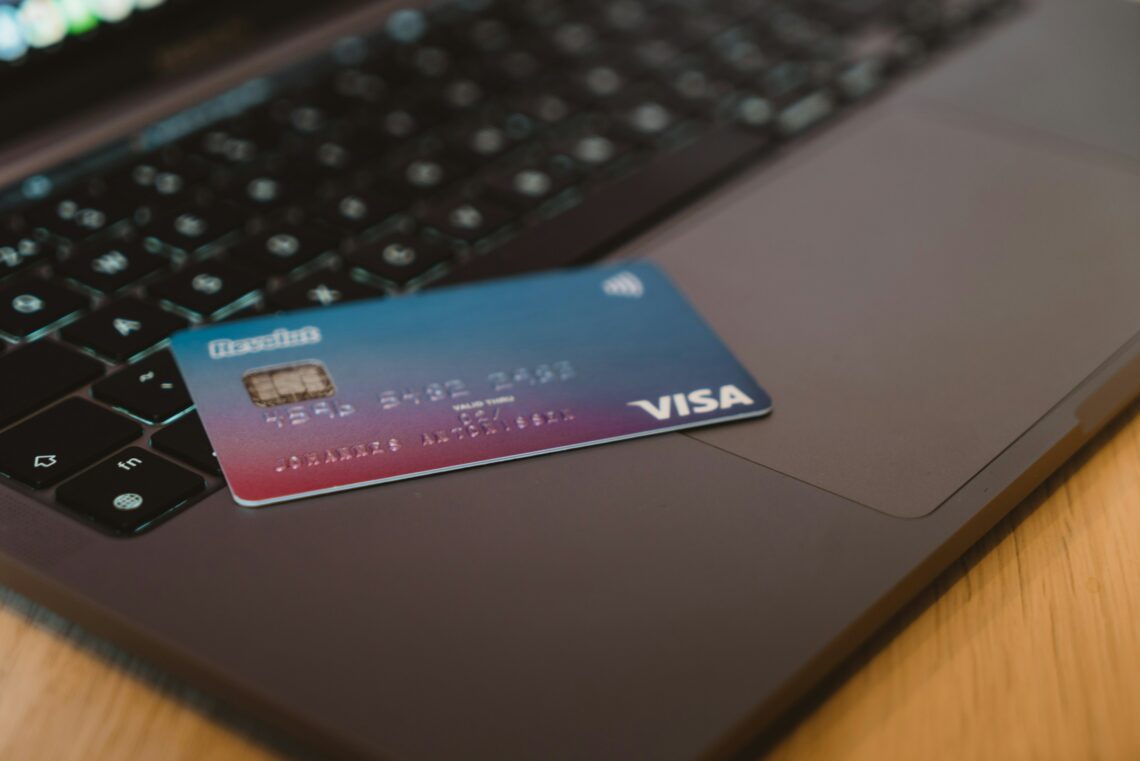Many potential homebuyers worry that they won’t be able to buy because of a low credit score. In fact, there are many loans and first-time homebuyer programs available for buyers without perfect credit. But learning how to improve your credit score can give you more options and a better interest rate, all of which will save you money in the long run.
If you’re thinking of buying a home, get pre-approved with a mortgage lender now to find out where you stand. You’ll have a better idea of how much work you need to do, or you may be surprised to learn that your credit isn’t a problem like you thought.
If you do need to repair or build your credit, we’ll walk you through some options. But first, why is credit such a big deal?
What is a credit score, and why does it matter?
A credit score measures how likely you are to default on a loan—that is, fail to pay it back. Also known as a FICO score, it allows lenders to measure the risk they’re taking when they lend money. Your score is based on your bill payment history, length and type of credit, and other factors. Lenders reserve the best loans and lowest rates for customers with excellent credit.
Here’s how one of the credit companies, Experian, breaks down credit scores:
- Poor credit: 300–579
- Fair credit: 580–669
- Good credit: 670–739
- Very good credit: 740–799
- Exceptional credit: 800–850
Having “poor credit” vs. “good credit” isn’t a personal judgment. Many people take hits to their credit due to unexpected bills, job loss, predatory lending, or a lack of financial awareness. Although this can be frustrating, there’s plenty you can do to change it.
Credit score myths
Before you get started applying for loans or figure out how to improve your credit score, let’s clear up a couple of myths that can affect your home-buying plans.
Myth #1: It doesn’t matter where I get my credit score
There are lots of ways to check your score: through your bank, credit monitoring apps, and free sites that advertise on TV. They use various methods to determine your score—one may give you a score of 725, another 690, and yet another may say you’re in the “purple” range. But do any of these scores help when it comes to qualifying for a loan?
In reality, mortgage lenders often use a different type of credit report to assess your creditworthiness. Websites and apps are a good place to start, and reviewing your free credit report is an important way to stay informed. But be aware that the score a lender sees could be different than the one you’ve seen. That’s why it’s so important to get pre-approved early and find out where you stand in a lender’s eyes.
Myth #2: Applying for a pre-approval will hurt my credit
This myth causes many buyers to avoid getting pre-approved as early as they should. The fact is, your initial pre-approval will result in a “hard inquiry” on your credit report, but it will likely reduce your score by only a few points. Additional pre-approvals are also unlikely to hurt you. The bigger problem is skipping a pre-approval when you need one.
Because of this, and the importance of shopping around for the best loans and rates, credit companies typically give you a window of 30 days to get multiple pre-approvals without additional hits to your credit. If you’re still house-hunting in six months or a year and need to get pre-approved again, that’s fine—it shouldn’t affect your ability to qualify.
I want to buy a house – what credit score do I need?
One of the most common questions first-time buyers ask is, what credit score do you need to buy a house? There’s no hard-and-fast rule for this, but you don’t need excellent credit to qualify for a home loan. Some lenders are flexible, and there are loans and down payment assistance programs available to those with lower credit scores.
That said, your credit score will affect your interest rate and loan. A higher score usually gives you better options and saves you money. Let’s take a look at some standard loan types and their requirements—but keep in mind, these minimum scores can vary by lender.
Conventional loan
Minimum score: Mid-600s
Conventional loans usually require a higher credit score and a down payment of at least 3% of the home’s purchase price. If you put down less than 20%, you’ll need to pay for private mortgage insurance (PMI), which increases your monthly payments. The more you put down, even if it’s less than 20%, the less you’ll pay in PMI.
Jumbo loan
Minimum score: varies, but around 700
A jumbo loan is used to cover a higher loan amount than other conventional loans—more than $510,400. Because of the higher amount, jumbo loans carry more risk and require a higher credit score.
FHA loan
Minimum score: 500–580
This type of loan, backed by the Federal Housing Administration (FHA), can help buyers with lower credit scores get into a home. If your score is 580 or more, you can qualify for a 3.5% down payment. With a score of 500–579, you’ll need a 10% down payment. All FHA loans require mortgage insurance, which adds to the cost of the loan. FHA loans can have other downsides, so make sure you understand the pros and cons.
VA loan
Minimum score: None
Backed by the U.S. Department of Veterans Affairs (VA), these loans are available to members of the military community, spouses, and beneficiaries of the active and retired military community. No down payment or mortgage insurance is required, but you may have to pay a VA funding fee.
USDA loan
Minimum score: 580
U.S. Department of Agriculture (USDA) loans serve buyers who plan to purchase a home in a rural area. You’ll need a minimum credit score of 580 to qualify.
Other loans
Loans offered by Fannie Mae and Freddie Mac can also help buyers who don’t qualify for a conventional loan. For instance, the HomeReady Mortgage allows a parent or other individual who won’t live in the home to be a co-borrower. Learn about other types of home loans and assistance programs.
How to improve your credit score if you have a low credit score
Once you’ve checked your credit and spoken to a lender or two, you may decide that improving your credit is the right next step. Depending on your situation, this could mean a quick fix or a longer repair process. Everyone’s needs are unique, but here are some general pointers to get you started.
If you haven’t already, request a free copy of your credit report. You can get one from annualcreditreport.com or any of the credit reporting agencies: Experian, TransUnion, or Equifax.
Read through your report carefully and look for any lines of credit or negative items you don’t recognize. If you find any inaccuracies, dispute them with the credit reporting agencies. This can take time, but removing a negative item can quickly boost your score. The Federal Trade Commission (FTC) has information about your credit rights and how to fix credit problems.
If you have a score of 730 or higher, you may not need to make any adjustments to get the best interest rate available. If you have a lower score, taking action as soon as possible will make the biggest impact.
Pay down high balances
The amount of credit card debt that you haven’t paid off, compared with your total available credit, is known as your credit utilization rate (CUR). Lenders prefer a CUR of 30% or less. The credit reporting agencies calculate this rate each month after receiving the report for your credit card balances.
Your credit score could quickly rebound if you pay down high balances so you have more credit available. However, if you pay off a credit card, it’s best not to close it, at least not right away. Closing an account can hurt your score. If possible, hold onto your accounts and use them occasionally. Otherwise, the banks may close them due to inactivity. Just make sure to pay the bills on time.
If you do need to close an account or two, choose your most recent ones. Your oldest credit cards carry the most weight when it comes to your credit history and score.
Avoid applying for new credit
Every time you apply for credit, the lender runs a hard inquiry on your credit report, which affects your overall credit. If you have multiple inquiries over a short period, it could have a compounding effect and lower your credit score even more.
As mentioned above, one exception is mortgage pre-approval—you can get multiple pre-approvals over several weeks and months without a negative impact to your score.
If you’re tired of receiving those “pre-approved” offers for credit cards in the mail, register at OptOutPreScreen.com, which halts these offers for five years. (You can always opt back in if you change your mind.) If you have trouble saying no to every great offer that comes along, this could be helpful.
Pay your bills on time
This step can take a while to make an impact, but the impact is a big one. Mortgage lenders want to see that you have a history of making on-time debt payments, especially over the last 12 months.
If you have a few late payments in your credit history, make a plan now for how you’ll pay on time for the next 6 months: schedule automatic payments, set reminders on your calendar, put aside money in a special account—whatever you have to do to make it happen. Knowing you have a plan in place will put your mind at ease.
Contact an attorney or credit counselor
If your credit report contains several negative items, such as a repossession, bankruptcy, or accounts that have gone to collection, consider getting outside help. Some law firms, such as Lexington Law*, specialize in addressing credit problems.
There are also nonprofit organizations who can provide guidance on how to improve your credit score for a low fee or no fee. They can help you understand your credit situation and prioritize so you can get back on track. The National Foundation for Credit Counseling* is a good place to start.
Finally, there are plenty of for-profit companies out there promising to consolidate debt and improve your credit score fast—but be cautious. Many of these services are questionable and won’t have the impact you’re hoping for. Always do your research before paying money for any service, and choose someone with a track record you can trust.
How to build credit if you don’t have any
If you haven’t had a chance to establish a credit history, start now. When you don’t have credit, you don’t have a score, which means you can’t borrow money.
This may seem counter-intuitive, but you should start by getting a copy of your credit report. Credit agencies can make mistakes, and if you find any, make sure to dispute them and ask for a correction. In a worst-case scenario, someone could steal your identity and apply for a line of credit in your name. If you see signs of this, follow these steps from the Federal Trade Commission.
Once you’ve ruled out any problems with your credit report, take the time to build your credit safely and responsibly using the options below.
Use what you’ve got
Ask your utility company and landlord to report your positive payment history to the credit bureaus.
Take out a personal loan
A bank or credit union understands it’s not always easy to build credit from scratch. Some offer low-risk loans designed specifically to help you build credit.
Apply for your first credit card
If possible, choose one with a low spending limit. The best strategy is to charge small amounts that you can easily pay off each month. These payment habits will help build your credit profile as a responsible credit user and someone who makes payments reliably.
Open a secured credit card
A secured credit card uses a savings account as collateral. The card limit is typically a percentage of the average monthly balance in the savings account. It’s best to use this card for small purchases and pay the balance monthly. Keep in mind that not all banks and lenders report secured credit card accounts to credit reporting agencies. A lender may be willing to convert the account to a traditional credit card after some time. Ask your lender about their policy before deciding whether it helps you to open an account.
Learning how to improve your credit score and shopping for a mortgage can actually go hand in hand. A good mortgage lender can help you create a plan to establish your credit or raise a low score. No matter where you stand today, it’s possible to improve your situation and position yourself to buy a house. It may take time, but the sooner you start, the sooner you’ll be approved for your first mortgage.
Takeaway: how to improve your credit score
Learning how to improve your credit score and shopping for a mortgage can actually go hand in hand. A good mortgage lender can help you create a plan to establish your credit or raise a low score. No matter where you stand today, it’s possible to improve your situation and position yourself to buy a house. It may take time, but the sooner you start, the sooner you’ll be approved for your first mortgage.




Leave a Reply